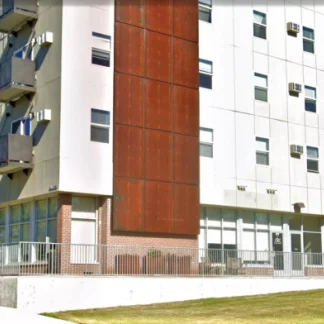Basin Alcohol and Drug Services
Basin Alcohol and Drug Services is a private rehab located in Williston, North D...
Choice Recovery Counseling is an outpatient facility that offers treatment for adults with a Substance Addiction. Choice Recovery Counseling is located at Williston, North Dakota
Choice Recovery Counseling is committed to provide quality services for individuals that are struggling with a substance addiction. Their treatment approach is based on Choice Theory, which focuses on increasing the quality of relationships and decreasing the use of external control.
Choice Recovery Counseling is committed to proving evaluation, education and counseling for adults. They offers a Substance Abuse Professional Evaluation for a $300 fee, and $50 for the following up session. Their Low Intensity Outpatient Programming requires a minimum of 8 sessions, with a $50 per session.
Contact us for more information: (701) 770-9743

Connect with Choice Recovery Counseling by calling their admissions team directly.
(701) 770-9743 Website Get DirectionsGroup therapy is any therapeutic work that happens in a group (not one-on-one). There are a number of different group therapy modalities, including support groups, experiential therapy, psycho-education, and more. Group therapy involves treatment as well as processing interaction between group members.
In individual therapy, a patient meets one-on-one with a trained psychologist or counselor. Therapy is a pivotal part of effective substance abuse treatment, as it often covers root causes of addiction, including challenges faced by the patient in their social, family, and work/school life.
Motivational Interviewing (MI) is a clinical approach to helping people with substance abuse issues and other conditions shift behavior in positive ways. It is more goal-oriented than traditional psychotherapy, as MI counselors directly attempt to get clients to consider making behavioral change (rather than wait for them to come to conclusions themselves). Its primary purpose is to resolve ambivalence and help clients become able to make healthy choices freely.
In individual therapy, a patient meets one-on-one with a trained psychologist or counselor. Therapy is a pivotal part of effective substance abuse treatment, as it often covers root causes of addiction, including challenges faced by the patient in their social, family, and work/school life.
Motivational Interviewing (MI) is a clinical approach to helping people with substance abuse issues and other conditions shift behavior in positive ways. It is more goal-oriented than traditional psychotherapy, as MI counselors directly attempt to get clients to consider making behavioral change (rather than wait for them to come to conclusions themselves). Its primary purpose is to resolve ambivalence and help clients become able to make healthy choices freely.
Motivational Interviewing (MI) is a clinical approach to helping people with substance abuse issues and other conditions shift behavior in positive ways. It is more goal-oriented than traditional psychotherapy, as MI counselors directly attempt to get clients to consider making behavioral change (rather than wait for them to come to conclusions themselves). Its primary purpose is to resolve ambivalence and help clients become able to make healthy choices freely.
Basin Alcohol and Drug Services is a private rehab located in Williston, North D...
Montgomery Counseling Service is a private rehab located in Williston, North Dak...
ADAPT is a private rehab located in Williston, North Dakota. ADAPT specializes i...
ADAPT - Airport Road offers outpatient treatment for individuals with alcohol an...